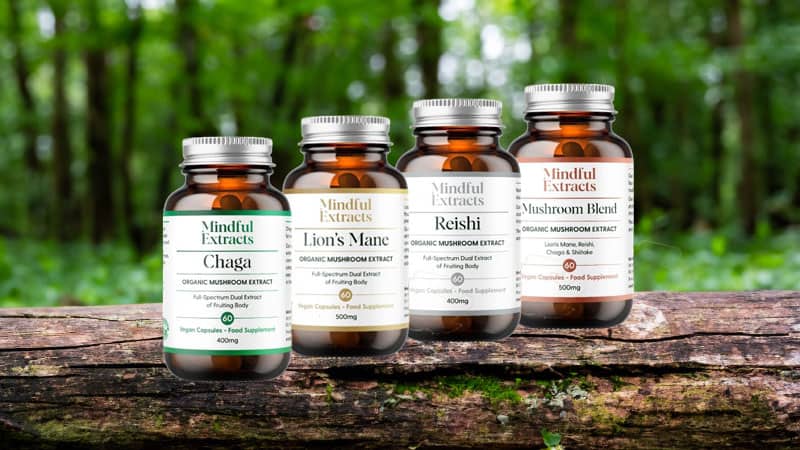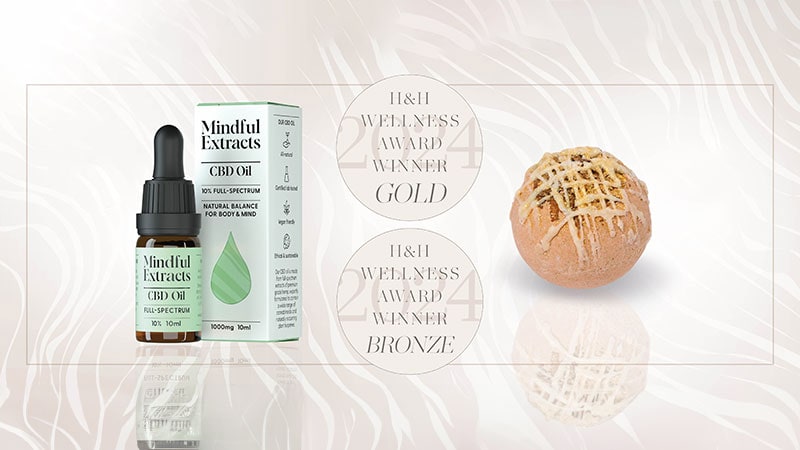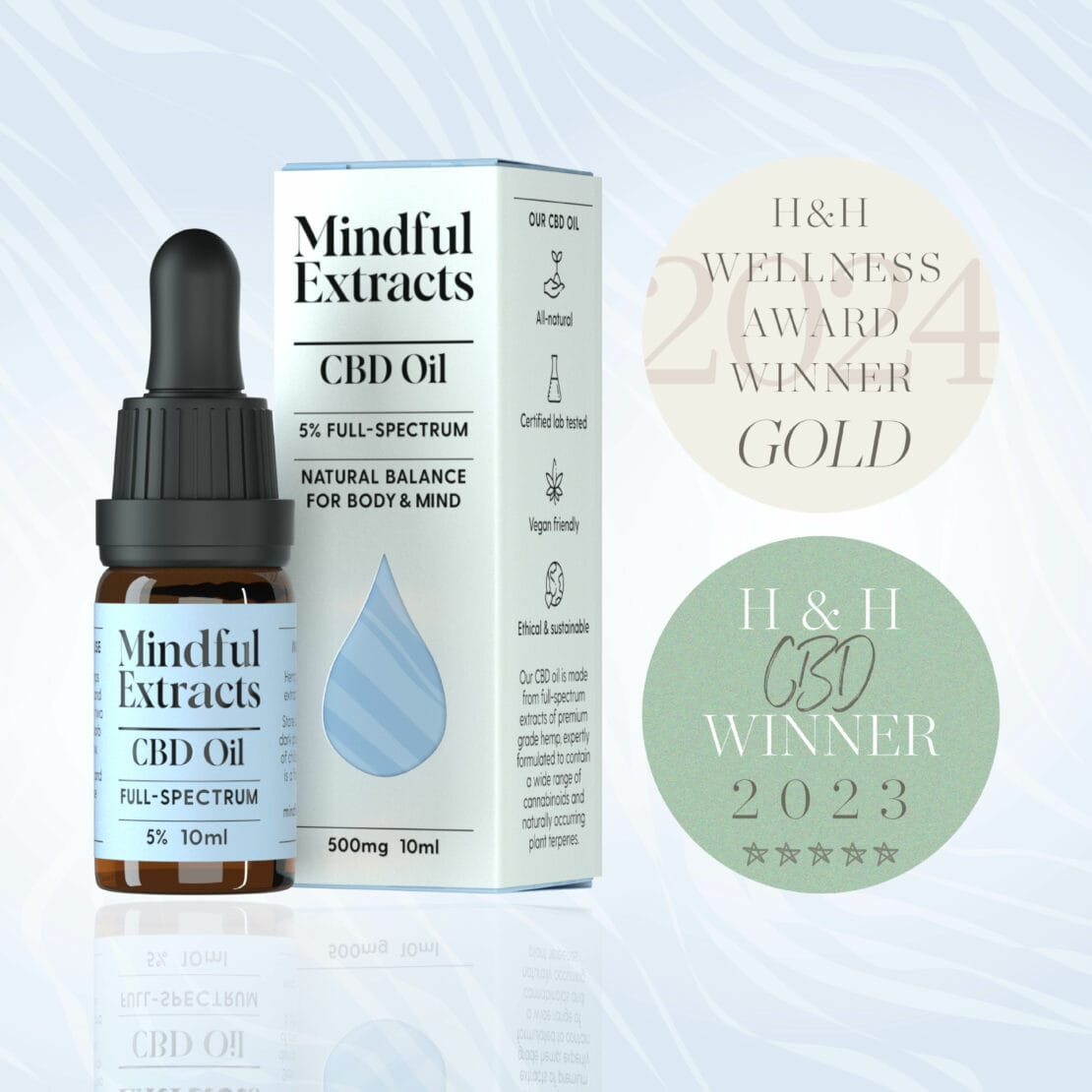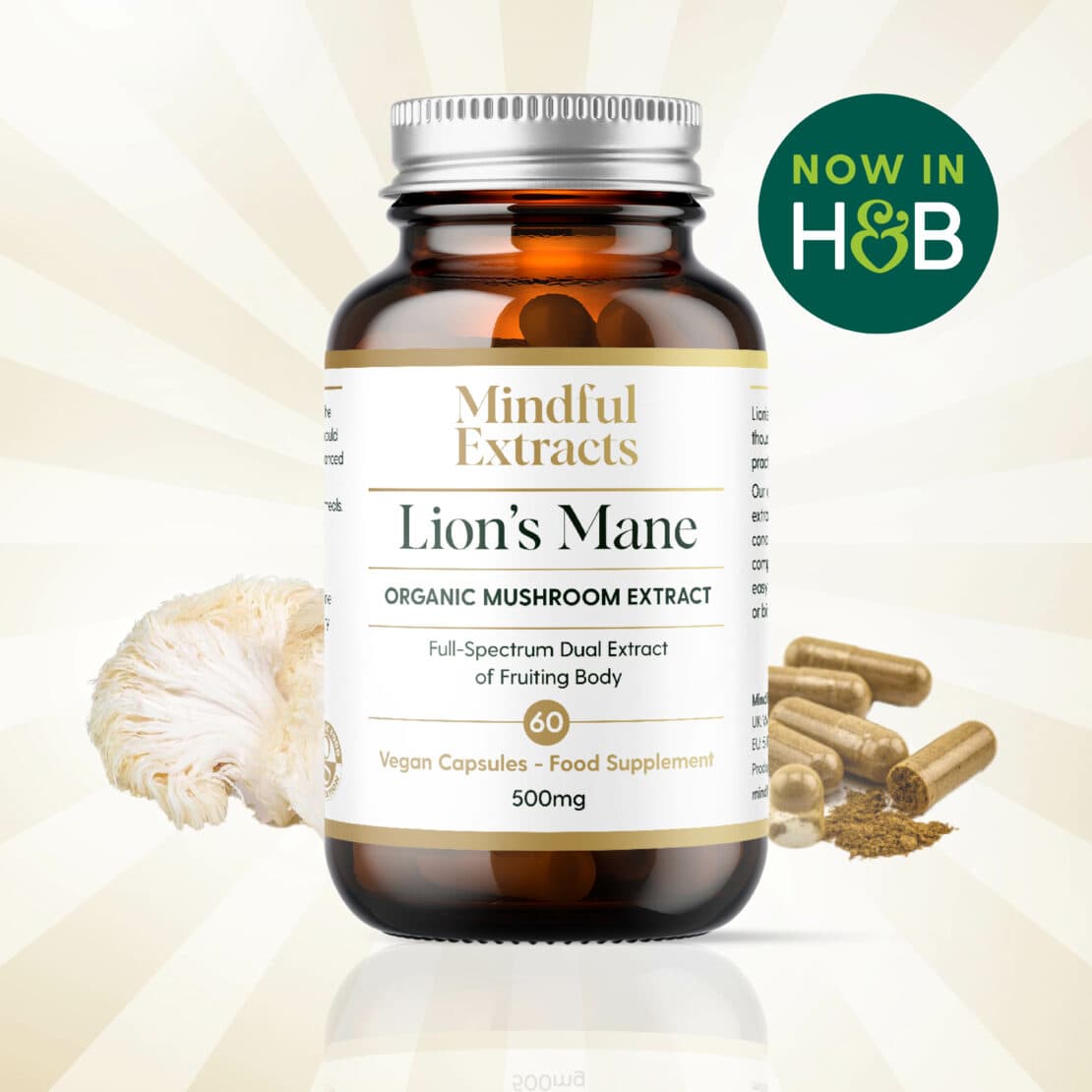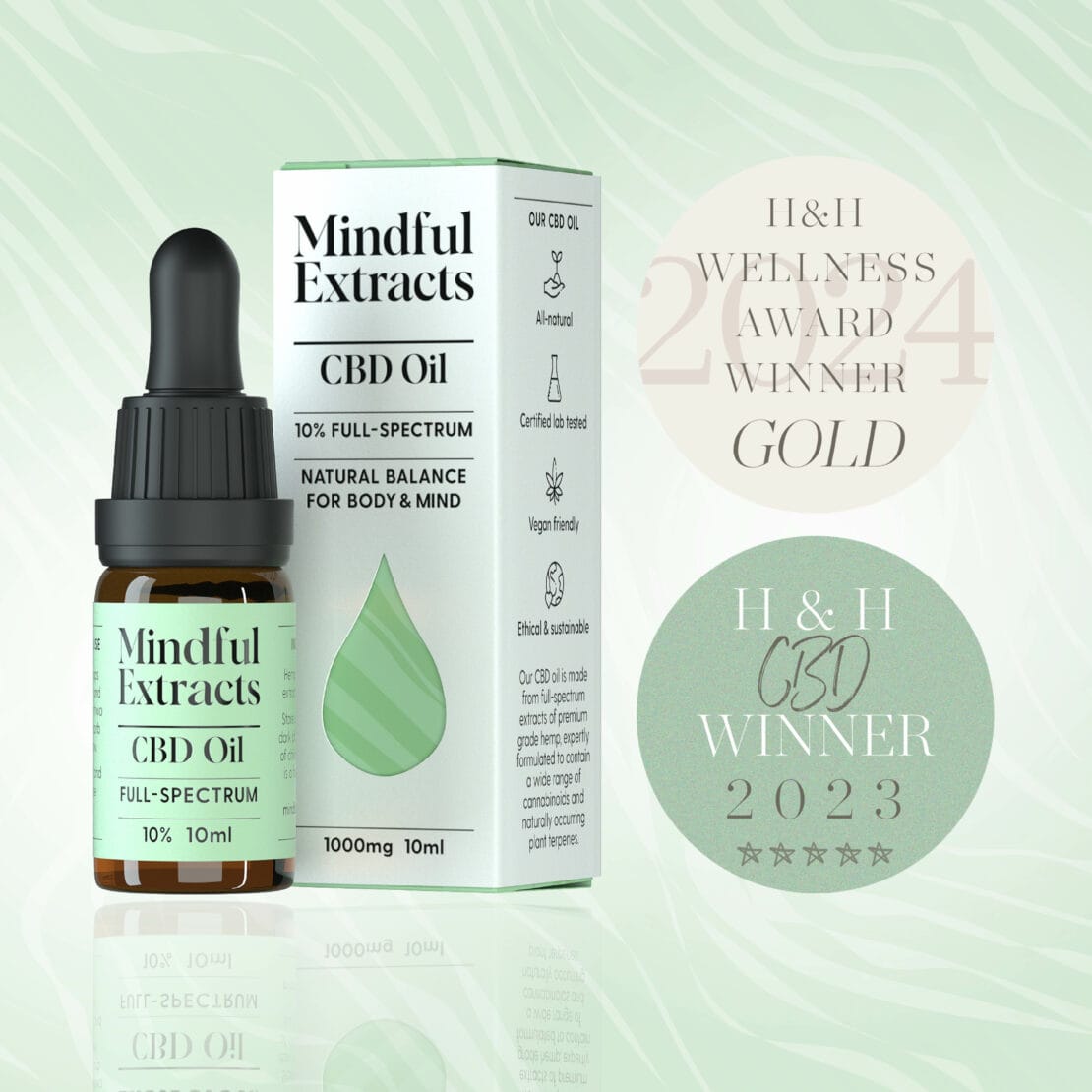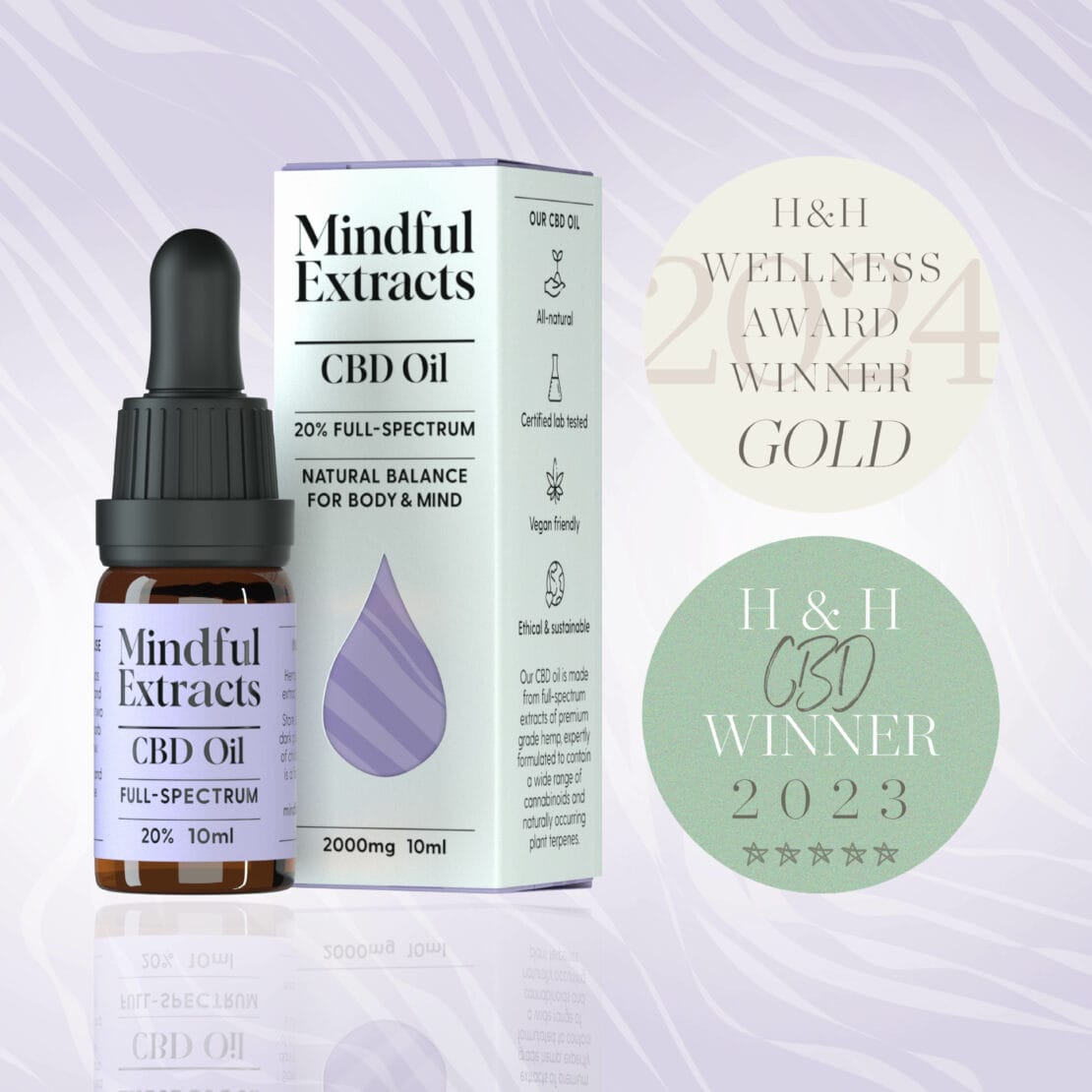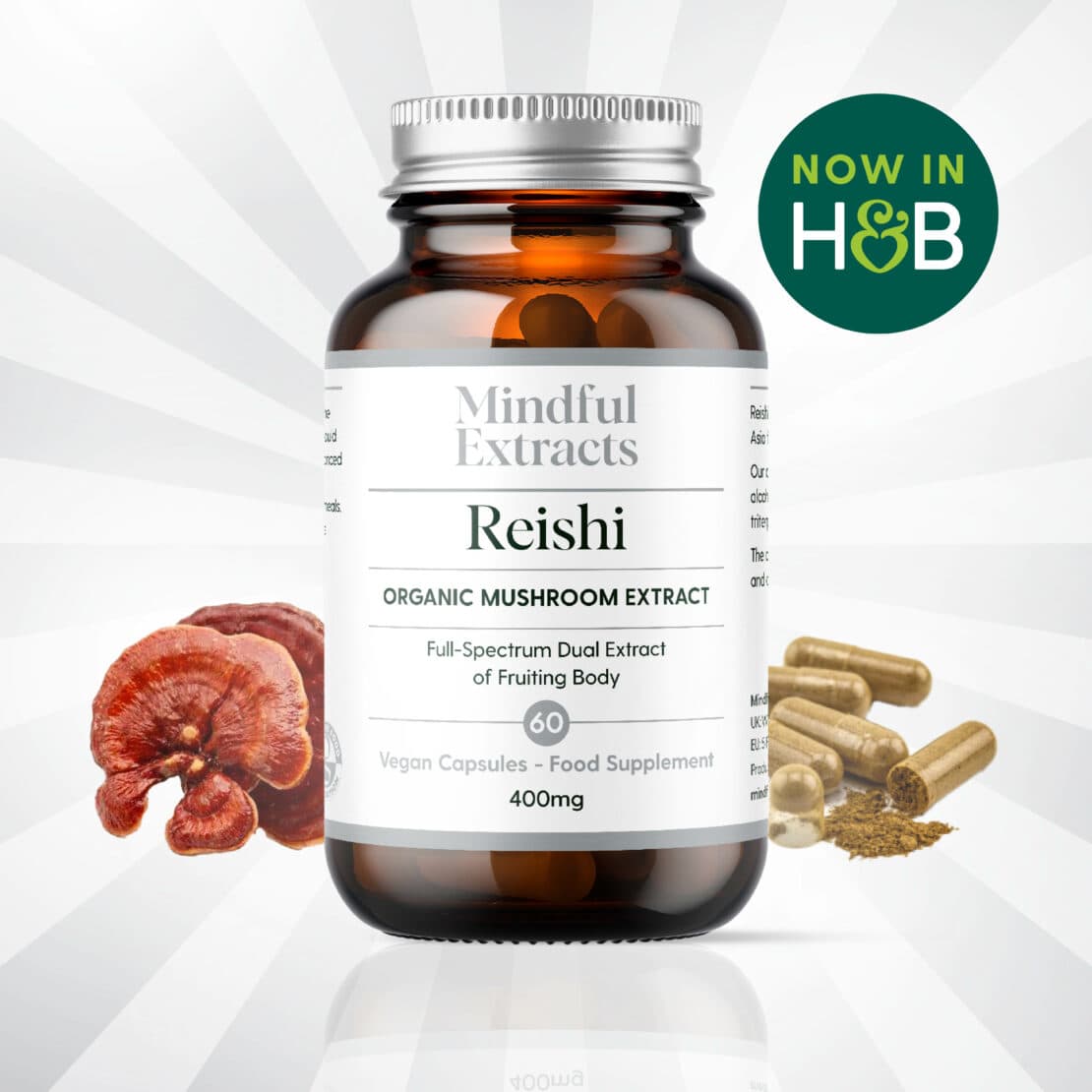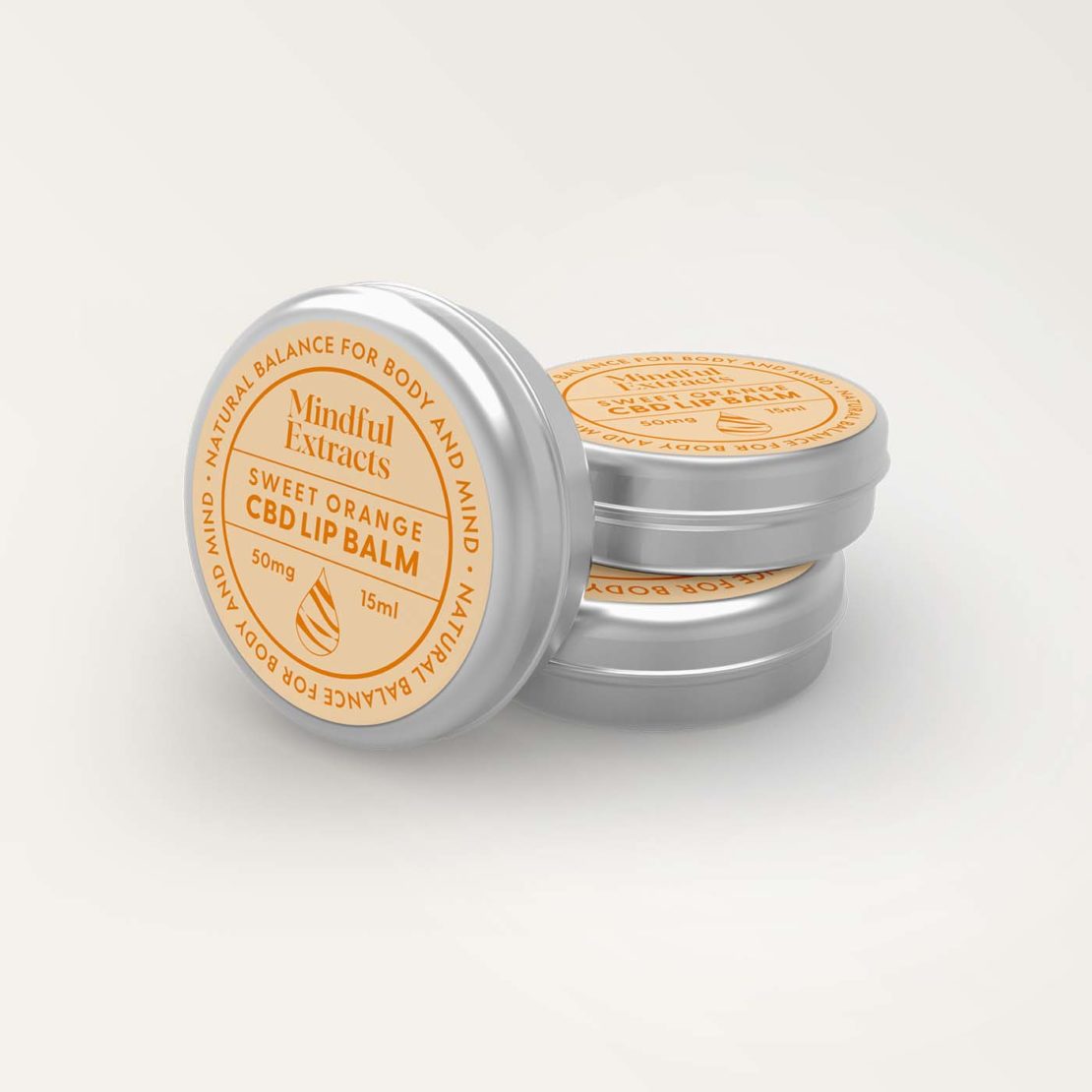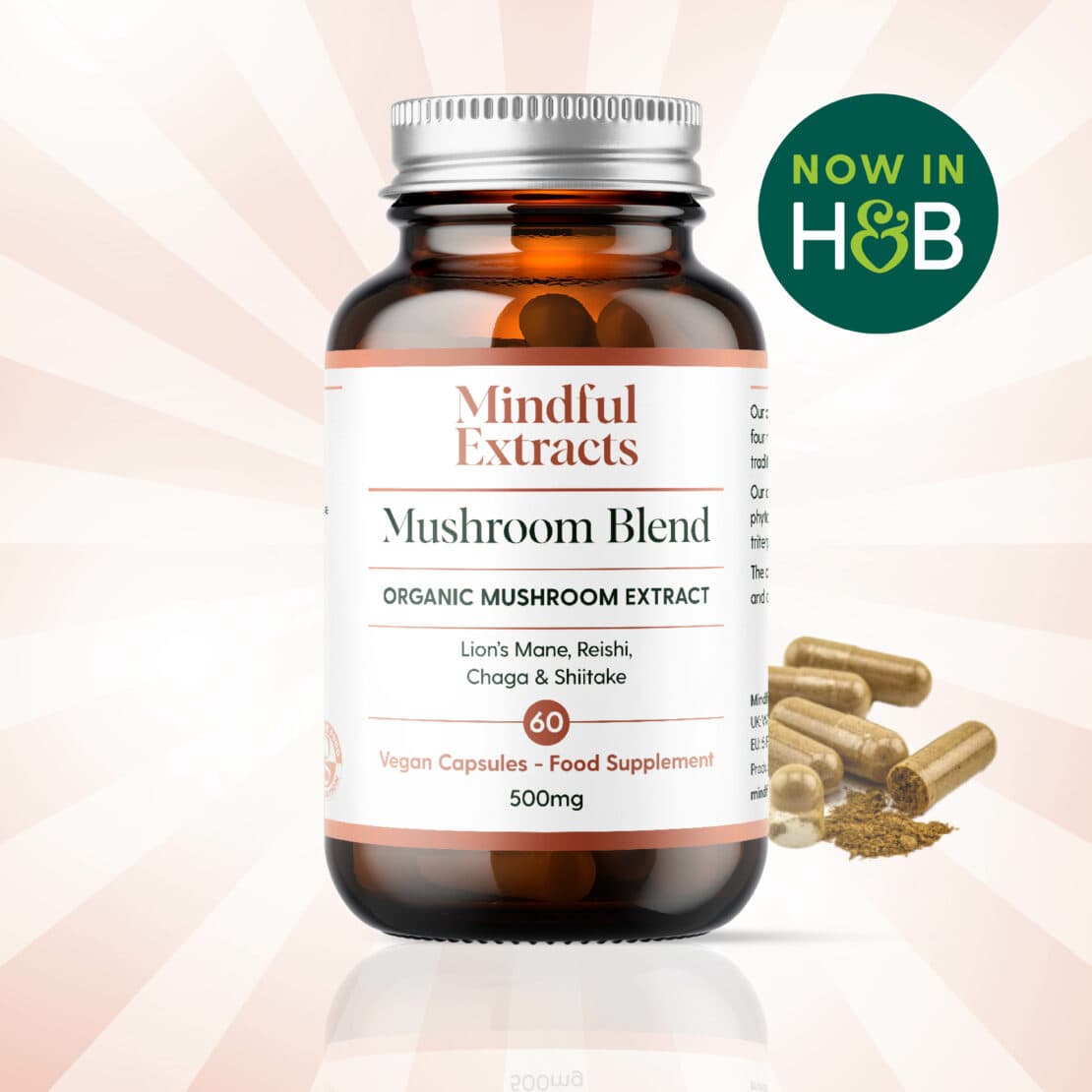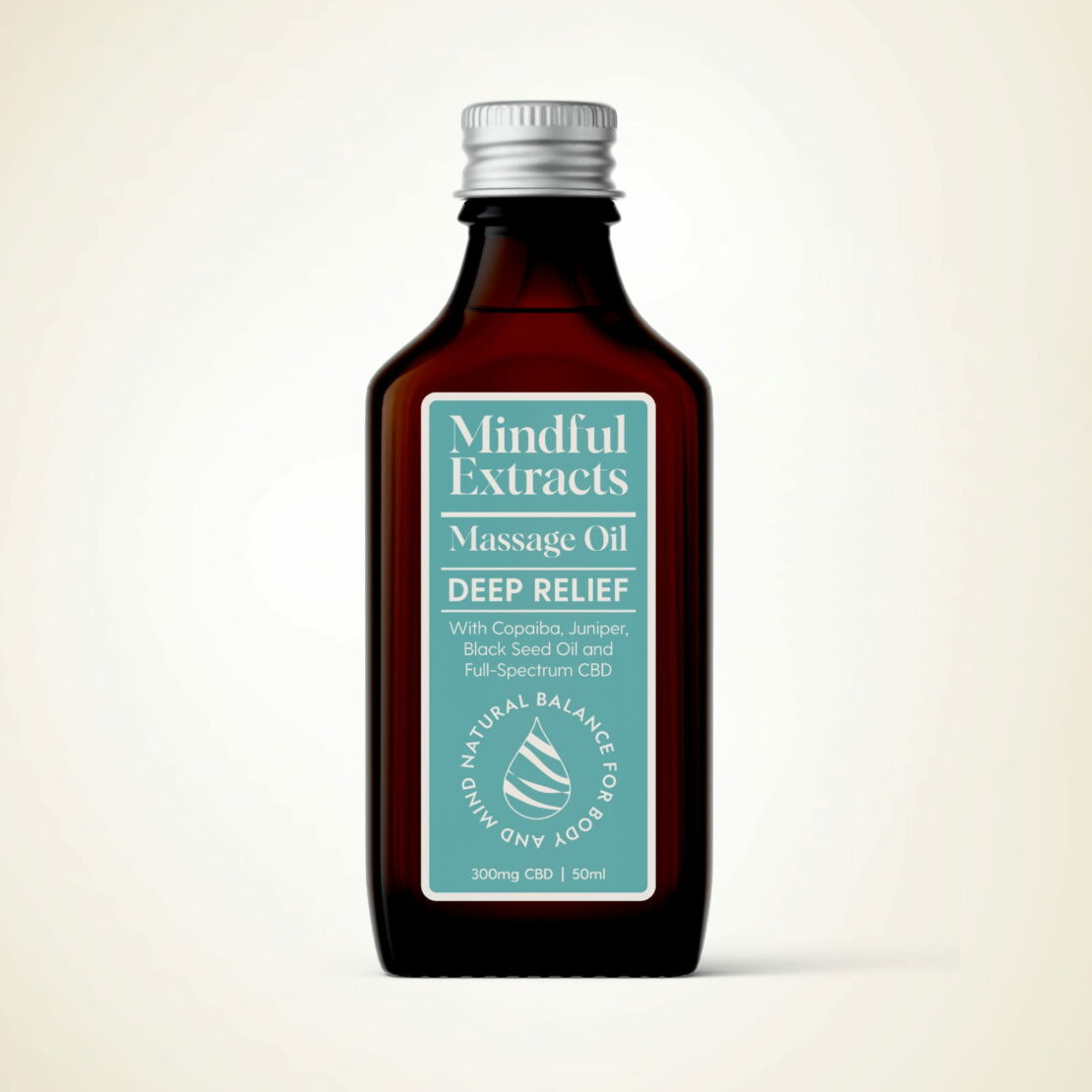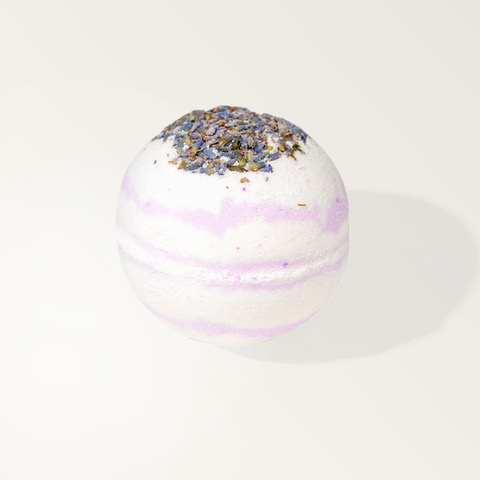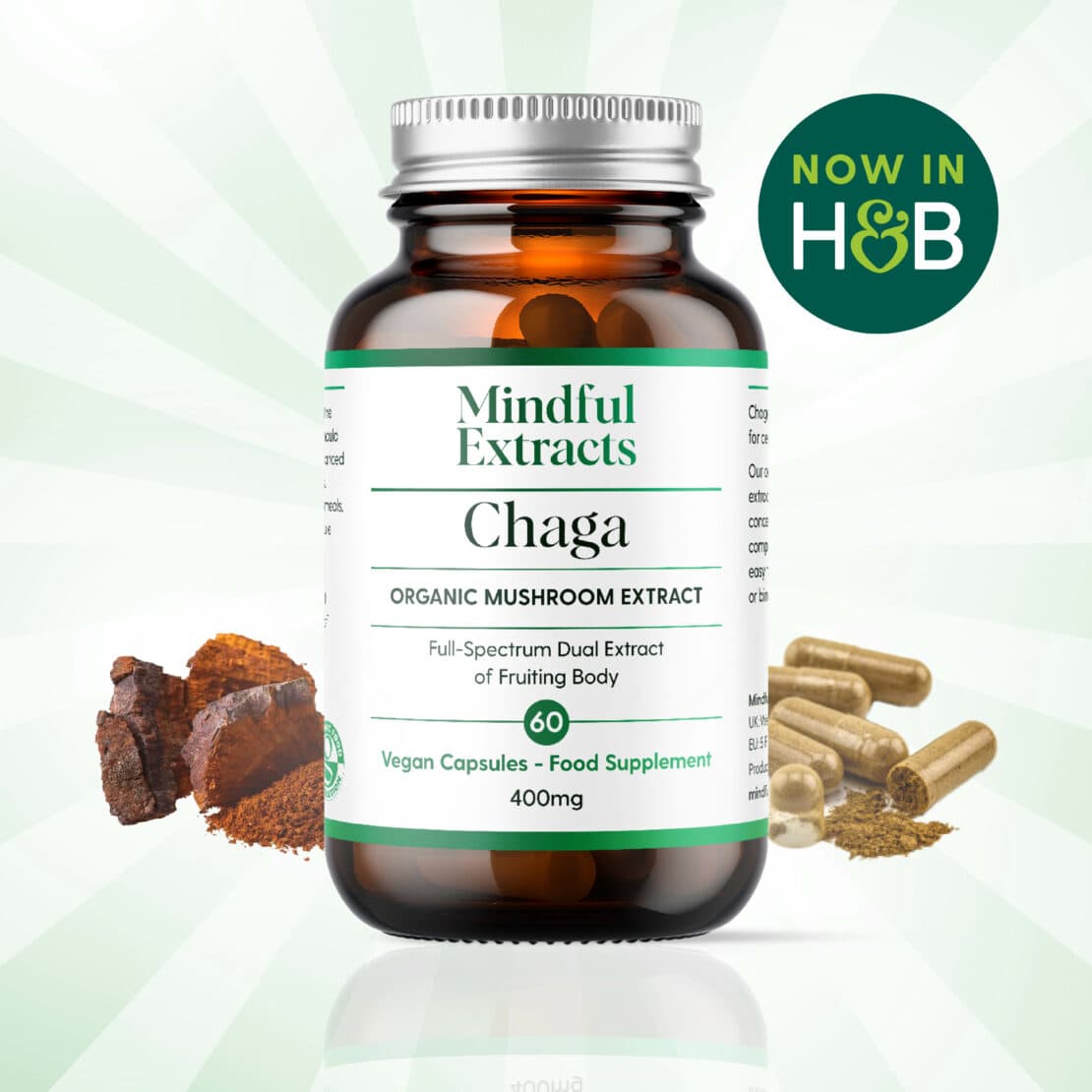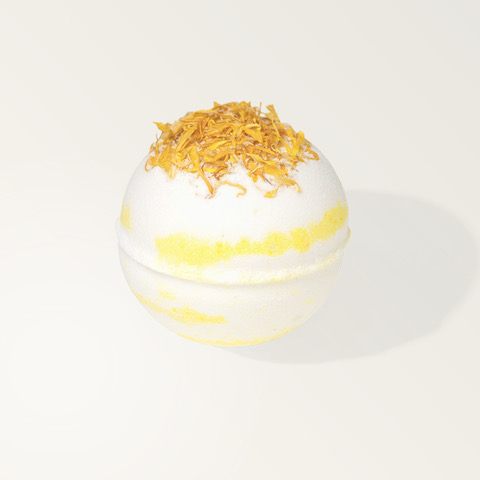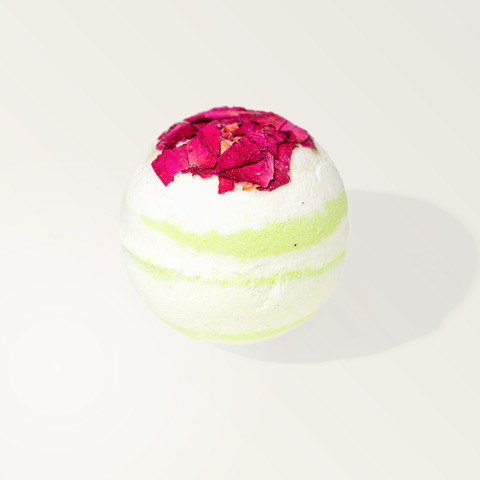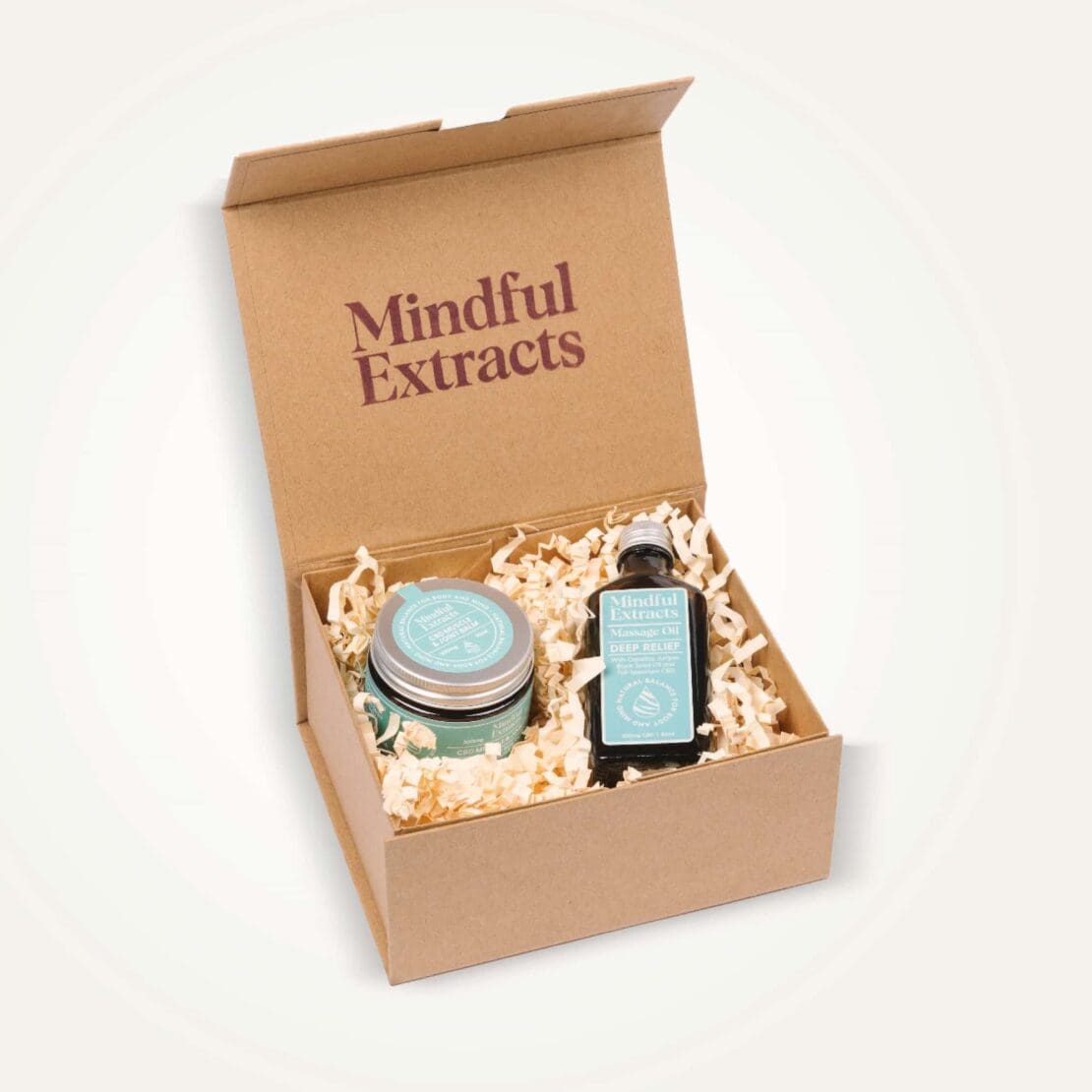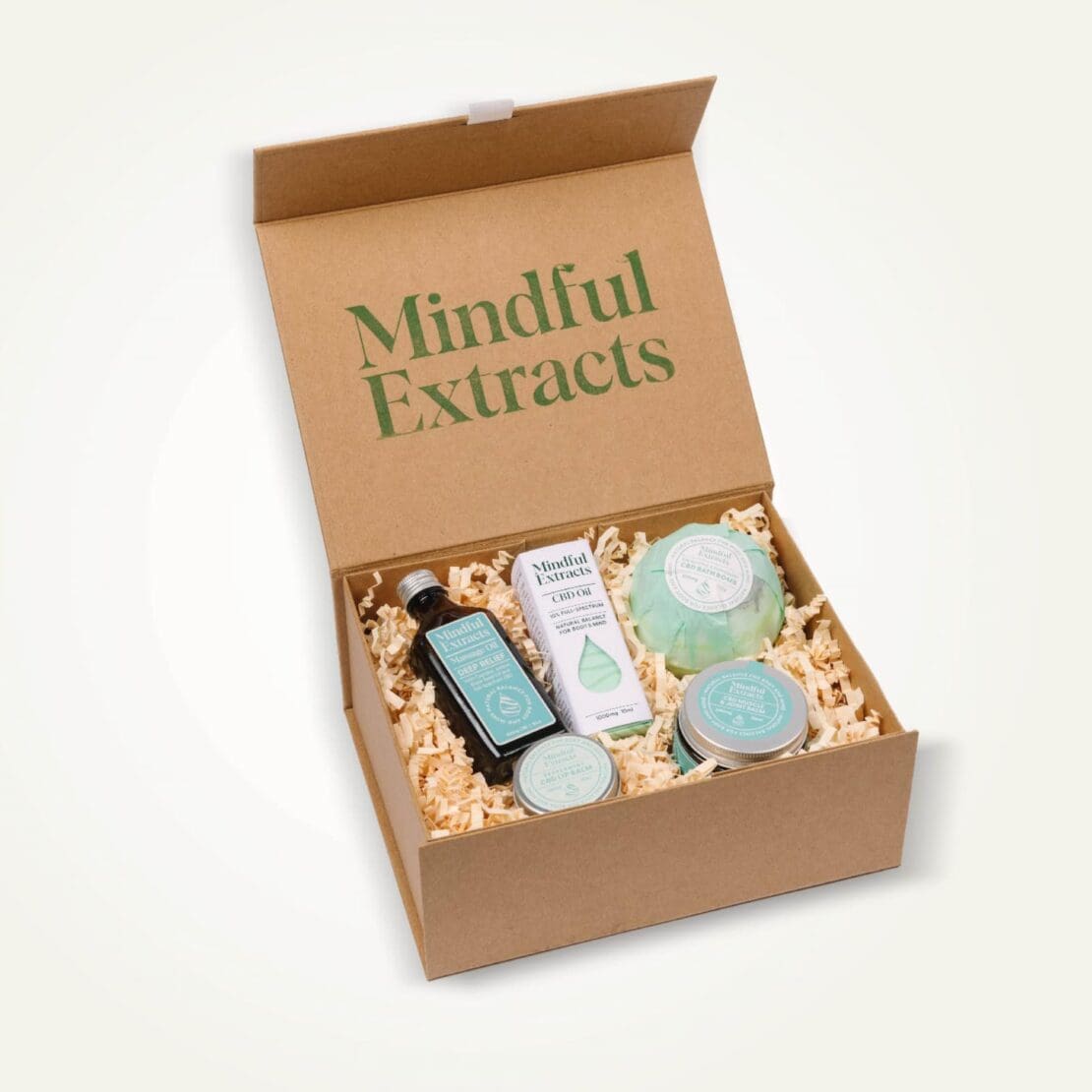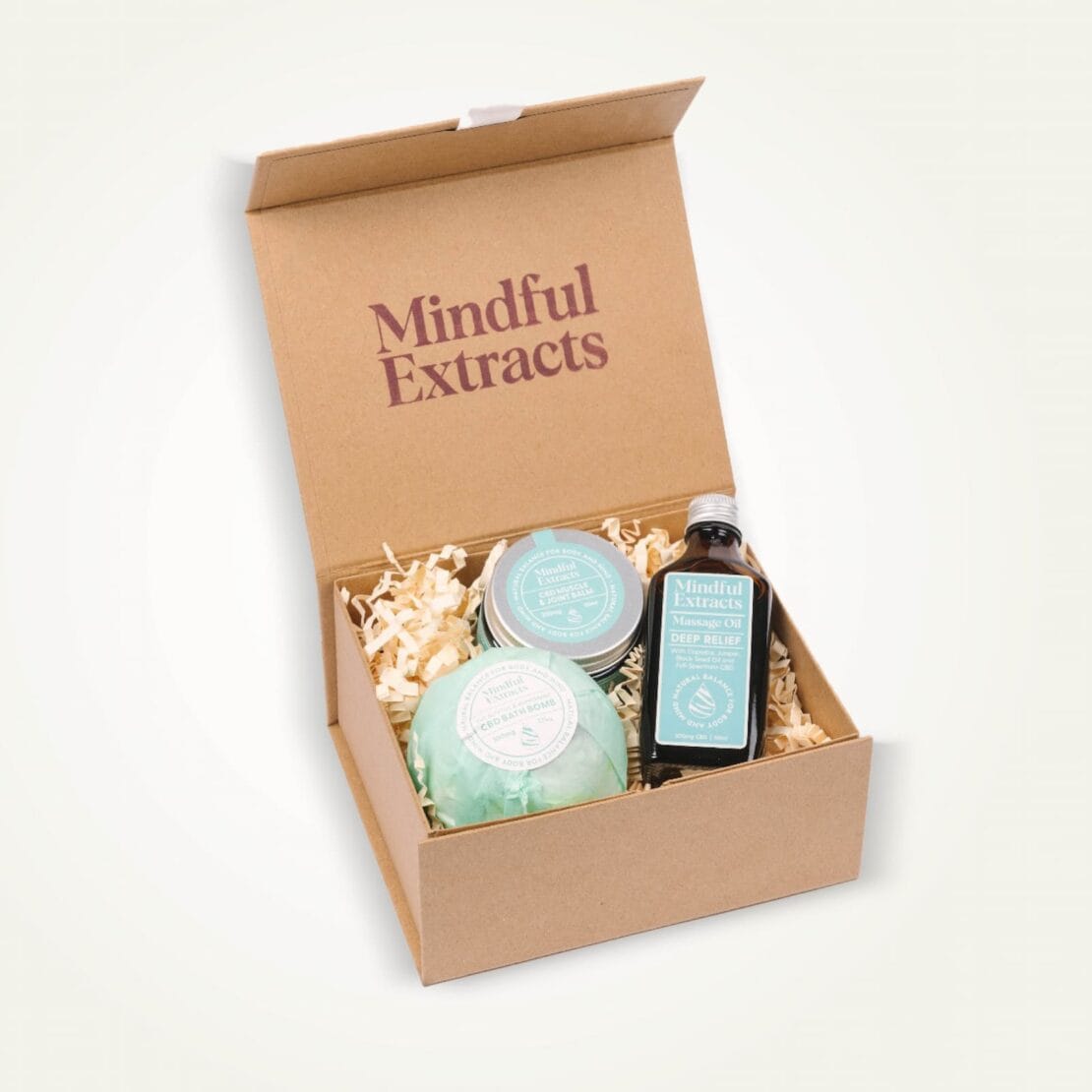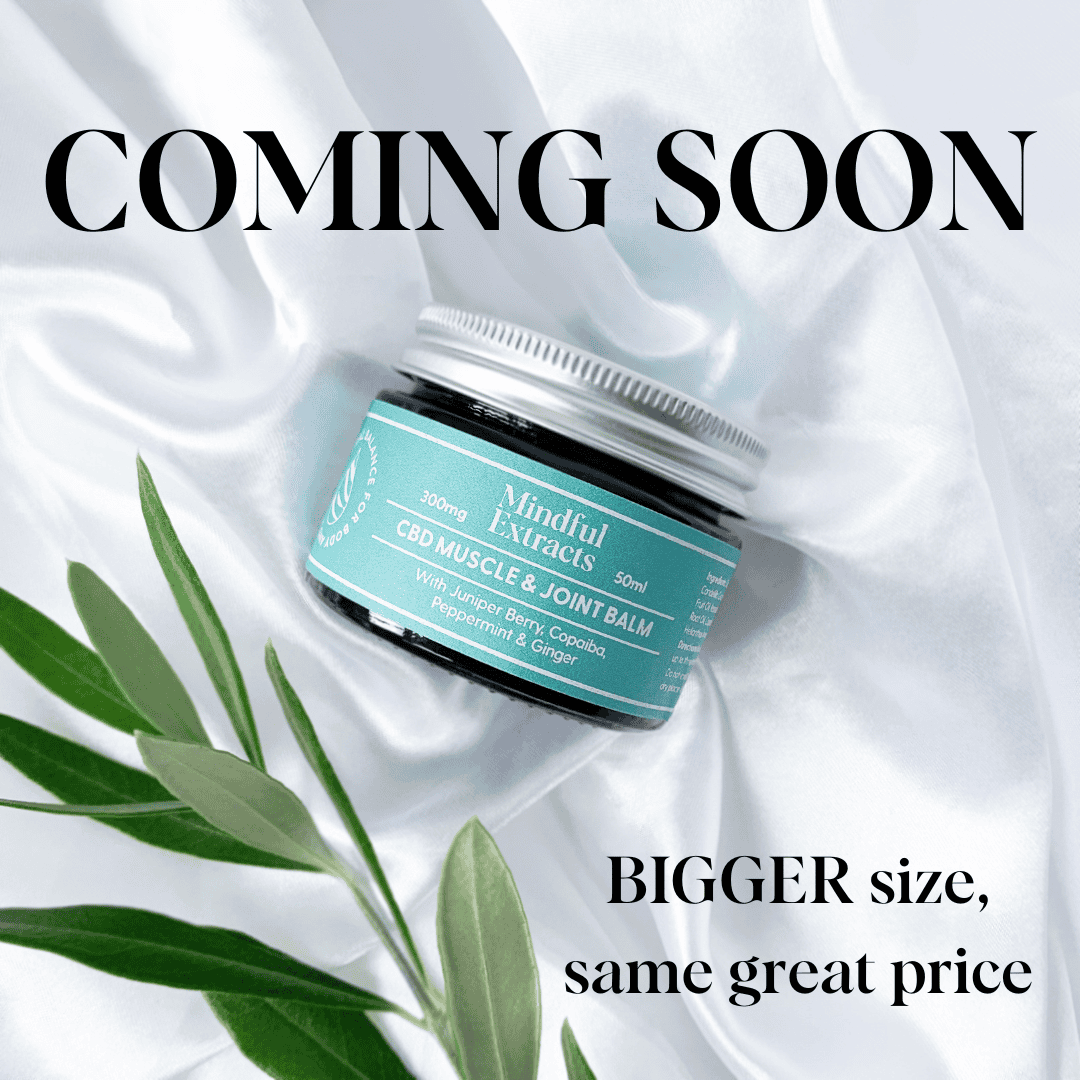Reishi, Chaga, Lions Mane, Shiitake…if you’re into wellness, you’re likely a fungi fanatic or will soon become one!
Functional mushrooms (more on that topic below) have become a big part of the natural well-being scene over recent years. Many brands have now jumped on the mushroom bandwagon and developed their own concoctions.
But did you know that simply drying mushrooms, grinding them into powder, and packing them into capsules (or making a hot chocolate drink) won’t offer the benefits of mushroom supplements you’ve likely read about?
Unfortunately, creating mushroom supplements with high bioavailability (maximising their active effects) takes more expertise and finesse than is commonly found in the now-sprawling wellness industry. It’s the extraction process that is critical to maximising the bioavailability of a mushroom supplement.
At Mindful Extracts, we are always mindful (pun intended!) of our extraction process! We’ve spent many years with a mycologist developing organic, full-spectrum, functional mushroom extracts with maximum bioavailability and no fillers. Our team has experienced the transformative benefits of our fungi friends, and we are proud to admit that we are all a bit mushroom-mad!
What are ‘functional’ mushrooms?
Functional mushrooms are valued for their health benefits rather than just their nutritional value. They differ from ordinary culinary mushrooms because they are thought to support health in various ways, such as boosting your immune system, reducing inflammation, enhancing brain function, and helping your body manage stress.
Functional mushrooms are undoubtedly one of nature’s finest creations that offer many benefits. If you want to start your journey into these fantastic fungi but are not sure where to begin, here’s a quick guide to what each mushroom offers:
- Reishi (Ganoderma lucidum). Reishi is a super mushroom found widely throughout Asia and is commonly known as ‘the herb of spiritual potency’ or ‘the mushroom of immortality’. In traditional Chinese medicine, it is considered the highest class of tonics, promoting vitality and longevity.
- Lion’s Mane (Hericium erinaceus). Lion’s Mane has been used for over 2,000 years for a range of well-being benefits, including boosting memory and cognitive function and promoting internal organ health. Buddhist monks were known to use Lion’s Mane to improve their focus and enhance their meditation.
- Chaga (Inonotus obliquus). Chaga is packed with antioxidants, vitamins, and minerals, which can reduce inflammation, support a strong immune system, aid heart health, and promote good digestion.
- Shiitake (Lentinula edodes). Shiitake is a popular mushroom full of fibre, vitamins and minerals. It also contains polysaccharides and terpenoids, some of which have immune-boosting and cholesterol-lowering effects properties. In Chinese medicine, these mushrooms are considered to boost health and improve circulation.
What makes a great functional mushroom supplement?
With so many options, deciding which mushroom supplement is best for your needs is difficult. And what makes one supplement stand out from the crowd anyway?
In a word: bioavailability!
Many mushroom supplements are created with just a few of the essential bioactives. Like CBD oil, buying a mushroom supplement that has been lab-tested is critical to ensuring excellent quality. But what should you look for in these lab reports?
Many lab reports will show high levels of polysaccharides. In fact, many lab tests only show polysaccharides. However, polysaccharide is just a carbohydrate or starch. So, that measure doesn’t indicate what the supplement will do for you. It’s the bioactive ingredients that are important when evaluating the functional mushrooms we mentioned earlier:
- Beta D Glucans. Beta-glucans are soluble fibres found in the cell walls of bacteria, fungi, yeasts, and some plants. Many studies are exploring the health benefits of these fibres, which have shown vast potential, from improving gut health and reducing the risk of cardiovascular disease to reducing inflammation, supporting brain function, and boosting the immune system.
- Hericenones and Erinacines. Hericenones and Erinacines are bioactive components that can be isolated from the mushroom. Lion’s Mane boasts the highest levels of these compounds, which have been found to protect and stimulate brain and nerve cells.
- Triterpenes. Triterpenes are a group of terpenes (aromatic compounds) found in fungi. Interestingly, one particular triterpene, squalene, is the precursor to all steroids! Reishi is the king of triterpenes in the mushroom kingdom, boasting over 140 of them. Triterpenes have been shown to produce antitumor, anti-inflammatory, antibacterial, antiviral, antiparasitic, liver protection, neuroprotection, cardiovascular protection, and metabolic regulation effects.
Functional mushrooms – capsules or tincture?
While powder extract in a capsule is a common form of mushroom supplement, an alternative is a mushroom tincture. So, which is better, and why? Here are some things to consider:
- Precise Dosage. Capsules contain a specific amount of mushroom extract, making it easy to track your consumption compared to a tincture.
- Taste. Mushroom capsules have no flavour. However, with a tincture, the mushroom is often suspended in alcohol, usually ethanol, which you may object to based on its taste, preference for no alcohol, and/or your religion.
- Value for money. Often, mushroom tinctures offer poor value for money. Unlike full-spectrum powders, they may contain very few bioactive ingredients. And the dose you’ll get from a whole bottle of mushroom tincture is likely equivalent to a couple of mushroom capsules.
So, with all this in mind, it’s filler-free, full-spectrum, lab-tested mushroom supplements you want – nothing less!
 Free Delivery on all orders over £40
Free Delivery on all orders over £40 
